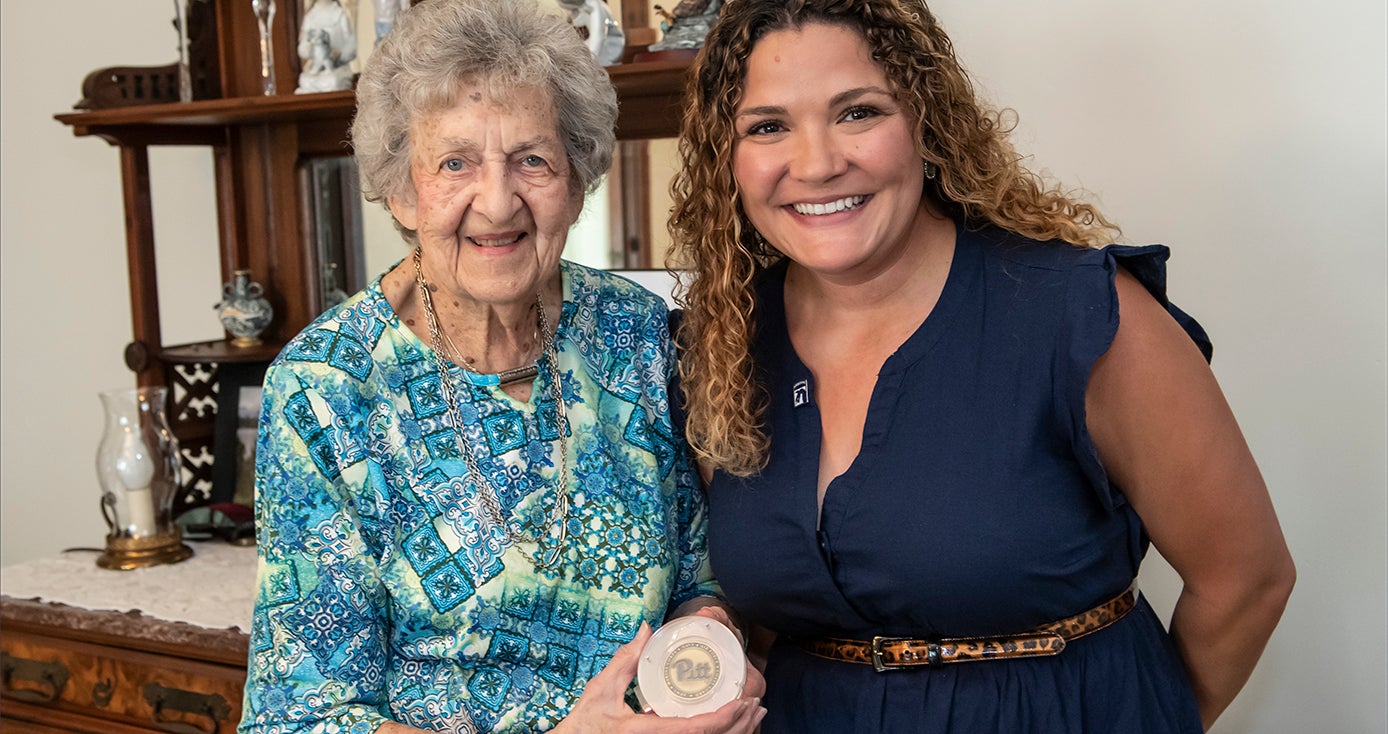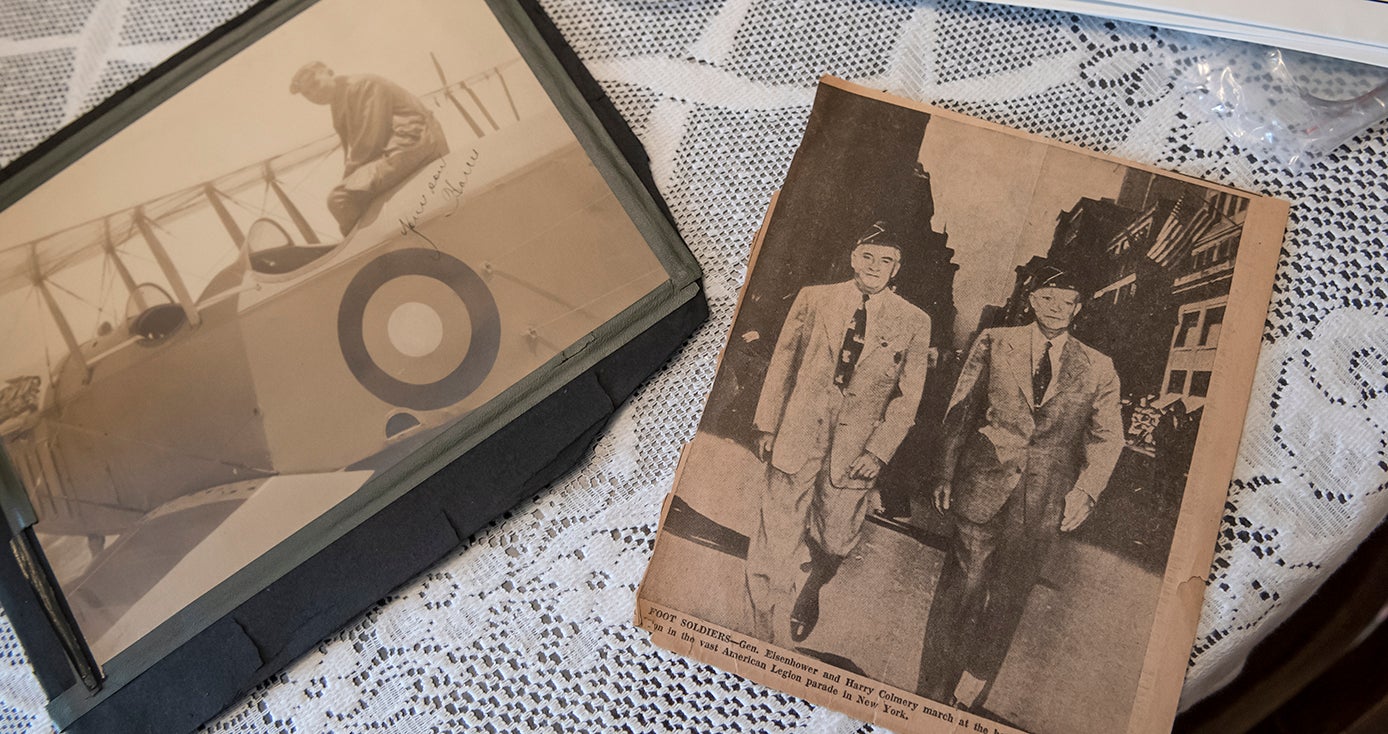
Subscribe to Pittwire Today
Get the most interesting and important stories from the University of Pittsburgh.Pitt Commemorates Law School Alumnus Who Authored First Draft of the GI Bill
Over 8 million World War II veterans obtained an education through the GI Bill, followed by millions more servicemen and women in subsequent wars. And it was made possible through the vision of Harry Colmery, a Pittsburgh native and 1916 graduate of the University of Pittsburgh’s School of Law.
Military Friendly University
Pitt has been named a 2019-2020 Military Friendly Top 10 School, as recognized by Viqtory Media — an honor measured by the University’s commitment, effort and success in creating sustainable and meaningful benefits for the military community. This is the eighth year in a row that the Pittsburgh campus has earned the designation. The Greensburg, Johnstown and Bradford campuses were also named military friendly, with Pitt–Bradford named a Military Spouse Friendly School.
Pitt’s Office of Veterans Services offers a wealth of resources and support systems to military affiliated students. In addition to Aryanna Berringer, many team members in OVS are veterans themselves.
PITT VETS and other entities also support the veteran community across all campuses.
Colmery (1890-1979), was born in Braddock, Pennsylvania, and served in World War I as a first lieutenant in the Army Air Service after graduating from Pitt Law. In 1936, after marrying his college sweetheart and settling in Kansas, Colmery served as national commander of the American Legion, advocating for a better future for servicemen and women upon their return home from war.
In late 1943, Colmery handwrote the first draft of the Serviceman’s Readjustment Act of 1944 — the original GI Bill of Rights — on stationery from the Mayflower Hotel in Washington, D.C.
Colmery’s niece Jean Colmery Roberts remembers it well. When she was in her mid-twenties, she hosted her Uncle Harry in her apartment outside D.C. just hours after he finished writing the legislation.
“Harry called me after he had written all night for the GI Bill. He told me he used seven pens, I think,” said Roberts, age 99, who now lives in Charleroi, Pennsylvania. “He was tired. He was supposed to go on a fox hunt and didn’t want to go, because he was too tired. He didn’t want anyone to know where he was, so he stayed with my sister and me.”
According to Roberts, it was Colmery’s character to work hard for the betterment of others, especially for those who served their country. She recalled her Uncle Harry as an unsung hero.
“He cared so much for his fellow man,” said Roberts. “He was a bright boy. He was dedicated, a hard worker, a deep thinker and a humble person in many respects.”
Millions of lives changed
President Franklin D. Roosevelt signed the GI Bill of Rights into law on June 22,1944. The bill, which is celebrating its 75th anniversary this year, provides education benefits to veterans and helps ease their transition into civilian life. Since then, the bill has undergone several updates to become what it is today. Also born out of the original GI Bill were subsequent programs to provide additional benefits in education, vocational rehabilitation and employment, home loans and health care.
Aryanna Berringer, the newly appointed director of Pitt’s Office of Veterans Services, is one of the millions of veterans whose life has been impacted by the GI Bill.
“For me, personally, I grew up in poverty. I grew up sometimes not knowing where my next meal would come from,” said Berringer. “When I joined the military, there was part of me knowing that I can get an education when I got out, that now has led me to the position I am in today. It’s one of those things that can change the trajectory of the life of somebody like me. I was able to break the cycle of poverty, all due to the GI Bill.”
In the past ten years, almost 1,000 Pitt graduates have received a degree under the GI Bill. And currently, there are about 500 degree-earning student veterans across Pitt, many of whom utilize GI Bill benefits. According to Berringer, about $8 million in education benefits come from the GI Bill per academic year at Pitt.
An inspiration to Pitt
When Colmery returned home from World War I, he used his degree from Pitt Law to propel his successful career as an attorney — even arguing two cases before the U.S. Supreme Court.
To Amy J. Wildermuth, professor and dean of Pitt Law, Colmery’s work represents the possibilities an alum has to support the community and the world at large.
“To know that a Pitt Law graduate could impact the nation and change the world in this momentous way is an inspiration for our graduates, and for all Pitt students,” said Wildermuth. On June 19, she and Berringer visited Roberts at her home to present her with a military Challenge coin and honor Colmery upon the GI Bill’s milestone anniversary. Challenge coins are collected by many veterans and displayed with honor and pride.
But today, Roberts said Colmery wouldn’t want any recognition.
“He would be pleased, but he wouldn’t want all of this. No, no,” said Roberts. “He was humble. He did everything in a very quiet way, and accomplished so much. You never knew what was going on in the background.”



